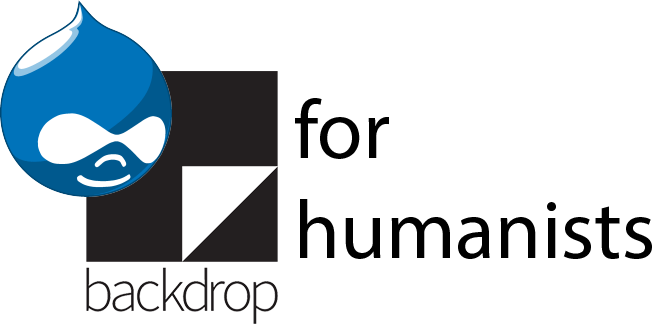Drupal compared to WordPress
WordPress is used by more than 23% of the top 10 million websites as of 2015. It is more widely used than Drupal, though Drupal powers more high-traffic sites. It is a very robust platform for blogging, including muti-user blogging (hosting multiple distinct blogs on a single WordPress installation.) Day of DH always uses WordPress.
WordPress is an excellent choice for projects, programs or events that need a relatively simple web presence that is easy to set up, update and maintain. Many of the websites for the international digital humanities conference have used WordPress, as does THATCamp. If your digital humanities project is one where most of the analysis work happens offline (i.e. using software like Gephi or ArcGIS), you may want to use WordPress to give the project visibility online, and post results and updates.
There are numerous plugins (the WordPress terminology equivalent to Drupal’s modules) that have been developed by the digital humanities community that extend WordPress’s capabilities beyond simply being a blogging and simple web publishing platform.
- CommentPress enables granular text annotation, making WordPress a great choice for publishing text of any length (policies and documents for professional organizations, full books like Debates in the Digital Humanities) where you want to gather feedback and promote discussion.
- Commons In A Box (CBOX) provides a platform for scholarly networking by adding user profiles and groups to WordPress’s robust blogging capabilities. Users in a CBOX group can post to a group-specific message board, share and collaboratively annotate documents, jointly create a wiki, and find other members who share their interests.
- DHPress allows users to create events, people, and documents, and associate them with locations on a map, though it aspires to provide a general-purpose digital humanities publication toolkit.
If your project’s goals and scope are well aligned with what WordPress offers as a stand-alone platform, using one of these plug-ins, or any of the thousands of other plugins available, using WordPress will allow you to get started with the substance of your project more quickly, as it requires less configuration.
Drupal’s major strengths compared to WordPress are its user-definable content types, which allow you to specify what kinds of data your site will store, and what kinds of metadata you will collect about each data type. If it’s easier to imagine your content stored in one or more spreadsheets than in the title and body fields that WordPress tends to offer on its content creation forms, Drupal will likely be a better fit.
